Refugee Week - Stories of sport and migration
Refugee Week - Stories of music and migration
Georgia: Euro 2024
The country of Georgia, a small nation in the caucasus reagion of Eastern Europe were the lowest ranked team in the tournament; noone expected much from them. They had been placed in a group with Turkey, a team with very young players such as Arda Guler; Czechia, a decent side with players like Soucek; and most of all, they had to play Portugal, one of the favourites.
Georgia does have some good talent, like Kvicha Kvaraskellia, who won the league with Napoli; Mikautadze, an up and coming striker; and Maramadashvilli, an underrated goalie. They began the campaign with an unfortunate draw against Turkey. It was a start which people expected, and people expected Georgia to lose the other two games, too.
Georgia had their second game versus Czechia. They needed at least a draw to have a chance of going through. The first half was coming to a close and Georgia were awarded a penalty, which was buried by Mikautadze. Czechia did come back to make it 1-1 by full time. It was all on the final game against Portugal.
A win was needed to get to the knockouts and all the odds were against them.
As soon as the game began, somehow Kvaraskellia managed to score. Incredibly, the game ended 2-0 to Georgia, after a dominant Portugal performance. This underrated team had got through, against all odds. It was truly a fairytale couple of weeks for Georgia.
In the next round, Georgia could not compete with the Spaniards’ 35 shots on target and conceded 4 goals to drop out of the tournament. Memories were made though by this underrated team.
“It brings hope”: Inside the ‘sanctuary store’ at an asylum hotel
How Refugee Council staff and volunteers are bringing warmth and friendship to a hotel for families in Yorkshire.
“We often need suitcases—they don’t want to carry things in a bin liner—and school bags. Simple things like that.”
Laura runs the ‘Sanctuary Store’, distributing clothes and other essentials in an asylum hotel for families in Yorkshire, with the help of a dedicated team of volunteers.
It’s a chilly morning, and we’re in a large, ground-floor room at the hotel, looking through the clothes and toys which the team have collected from the local area. The families in the hotel come in one at a time to pick out what they need; a little girl with her parents is fascinated by a shiny princess dress.
Prashani, who comes from Sri Lanka, is busy organising and displaying school uniform – she’s staying at the hotel as well as volunteering in the store. “Every day I’m in the room, with three children, it’s very difficult and stressful. When I come down here to help, it’s peaceful, it changes my mood, I feel more motivated,” she explains.
Back home, she was a nurse, and volunteering reminds her of this. “At that time I cared for patients, so now I can help here, it’s better for me.” She says she’d like to work in the NHS, when she’s passed an exam.
“We try and run this in a relaxed environment, so that people can make a connection, and be known by name,” explains Laura, who is a hotel support worker at the Refugee Council. “Often people arrive in a state of trauma.”
“It is about helping to restore their dignity. People are so stripped of individuality in the hotel… So it’s important we try to get to know them a bit.”
M., who is also from Sri Lanka, has been volunteering in this hotel for four months. “It makes me happy inside,” she says. “When I came to this country, we were in a hotel… I want to show my gratitude to Laura and this country. We came here with nothing.”
She says that the conversations they have are just as important as providing the basics. “People feel so comforted by expressing their feelings… They had to leave everything when they come here, they feel like failures when they come here, but they get help in the Sanctuary Store. It brings hope and it’s good for mental health. From my side, also, it’s the same.”
N. is from Afghanistan and is here with his wife. “We came by boat, it was so tough. The situation is Afghanistan is not good, especially for women,” he says. “It’s the control of the Taliban, truly.” He’s been in the hotel for seven months. “People think we’re living a good life, but mentally it’s disturbing.”
C. is picking up some shoes for herself and some school uniform for her daughter. “You people are doing a wonderful job,” she says. Laura is trying to find a keyboard for her son, who is musical. C. says she’d like to start volunteering herself, once both her children are in school. But for now, she’s still in shock. “Whenever I look at my children I start crying. It’s very tough, I can’t imagine myself, living a life I never dreamed of,” she says.
On one of the tables with craft activities, Amina* is making a sweater. “I’m a bit stressed,” she says, speaking in Kurdish. “I’ve been here 11 months, sometimes I think they’re going to transfer me, but they haven’t yet.”
Mel is a retired nurse, and started volunteering for the Refugee Council after a group of children from the hotel asked her directions to the local primary school. “They immediately walked off in the wrong direction!” she remembers. “It got me thinking—what can I do to help?”
“The hard thing is not knowing when people will get moved on, often they don’t get to say goodbye,” she says. And for the families themselves, this state of constant uncertainty is destructive—the children will have to change schools and abandon new friendships with very little notice.
While we are talking, a steady stream of people come in to find the things they need, and stay for a chat. By the end of this session, Mel is delighted. “I could dance up the high street,” she says. “The coats we had have gone onto people’s backs, so people will be warm in this weather. It’s a good feeling. New pants are so important, it’s so nice to have suitable ladies’ underwear, to be able to discreetly pass this on, to people who really don’t want to ask.”
The hotel is stark reminder of some of the reasons people are forced to claim asylum—the families here have lived through terrible experiences. Speaking with them shows how badly we need a fair and humane asylum system, so that they can recover and rebuild their lives, with a chance to work and care for their kids like anyone else.
With the news agenda so often filled with hostile headlines, it’s inspiring to see how local people are stepping in to welcome these families to their area, and how fast, given half a chance, these parents and children can become a valued part of their new communities.
Mohanad’s Story
My name is Mohanad and I’m from Sudan.
Refugees come here because they don’t have a choice.
If you help asylum seekers to get an education, they help themselves and the community. They contribute and improve the economy. If you deal with asylum seekers in a better way, it is better for everybody.
My message is that the waiting time in the asylum system is long—too long! I was waiting for more than one year. We need to cut long waiting times, and allow refugees to get training and education so they can work.
People are forced to leave Sudan because of war, because of genocide, because of ethnic persecution. People have heard about the war now, but they don’t realise how bad it was before.
What’s happening now in Sudan is heart-breaking, and we are losing hope. At first I thought I would go back to my country, but now the war is in the capital of Sudan, I don’t think they will make it safe. Myself and all Sudanese, we were hoping for freedom and democracy. Now we just hope for safety, food and water. The situation has gone from bad to worse.
My journey was horrific… I can’t explain it all. I had no idea what I was going to face. I came through the desert to Libya, there was no life there. Everywhere we moved, someone would die. Moving between cities in Libya was impossible.
Trying to cross the sea, it was a terrible and deadly journey. People were being killed. In France, many refugees are homeless, sleeping on the street, they can’t even eat, and they face harassment from the police as well as the public.
When I arrived in the UK, it was emotional. I had been travelling for three years. I even cried when I got a room, because I had been living without a bed for three years, just a floor, because of my difficult journey.
Many British people are really amazing. I’m very grateful. Sometimes I experience racism, but most people here are open-minded. I still miss my home. If there was a choice, I would go back, but there’s no choice. I’m really thankful to be here. Here I really feel safe.
I’m applying to continue my studies now, and I’ve been accepted onto an Access to Medicine course. I hope I will now be able to complete my education.
From Eritrea to Éire
A True Football Story
Can you introduce yourself and tell us about your football life?
My name is Adonay Mustofa and I was born in November 2002 in Asmara, Eritrea. At the age of seven I started to kick football around the garden of my house. As I was very young my parents were not confident enough to let me play football in the streets, however I often managed to sneak out of the house to watch the teenagers play on the streets. Although they never let me play, as I was young, I had the opportunity to watch them play.
In Asmara, road cycling was more popular than football. Every Sunday roads are closed and people are out on the street to support their favourite cyclists. My family were also big fans of cycling. My older brother at that time was riding for one of the oldest cycling teams in Asmara, “Red Sea”. But even though I was my brother’s biggest fan I always wanted to play football more than ride a bicycle.
I started playing for my school team and every Sunday I used to play in another neighbourhood by pretending I was going to watch my brother cycling, until I was found out one day and punished. I was interested in watching football. I was a Manchester United fan and my favourite player used to be Luis Nani. My dream was to become like him.
In January 2018 I moved to Ireland and joined SARI and started playing every Friday. However this was not enough. A couple of months later I joined Beaumont FC Under 16. After playing one season I stopped to focus on my studies and then Covid came as well. But then in September 2020 I joined a new team called St Patricks FC. I played two good seasons and moved to my current team Stella Maris.
What role does football and Sport Against Racism in Ireland play in your community?
SARI had a lot of impact on me. SARI showed me there is equality in sport, and everyone should be treated the same with respect.
Football has multiple roles in my community. The biggest role is equality, where everyone can play and enjoy football no matter their background or gender.
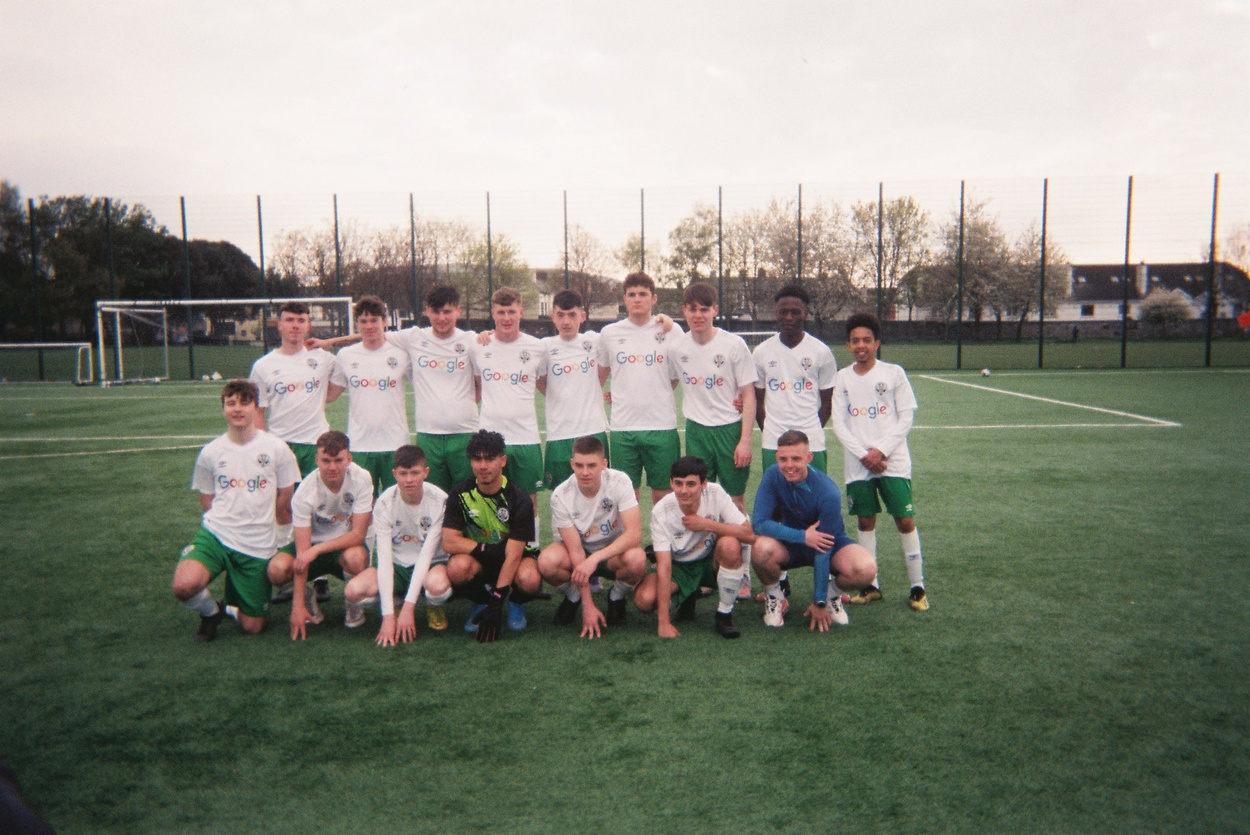
What does football mean to you? What ambitions do you have for the future?
It is very difficult to properly explain what football means to me. However, football is everything to me. It is the most beautiful sport to play or watch. It is what makes me relaxed when I am feeling low or stressed. I totally switch off when I play football. I wanted to become a footballer, however not everyone gets the chance. But I am always playing.
What is the future for football in Ireland?
We can see Ireland has many legends, however the future of Irish football needs a lot of work. We need to introduce different types of playing styles to be more competitive in Europe and in the world. There are many talented players who just need modernised coaches to help them reach the top level.
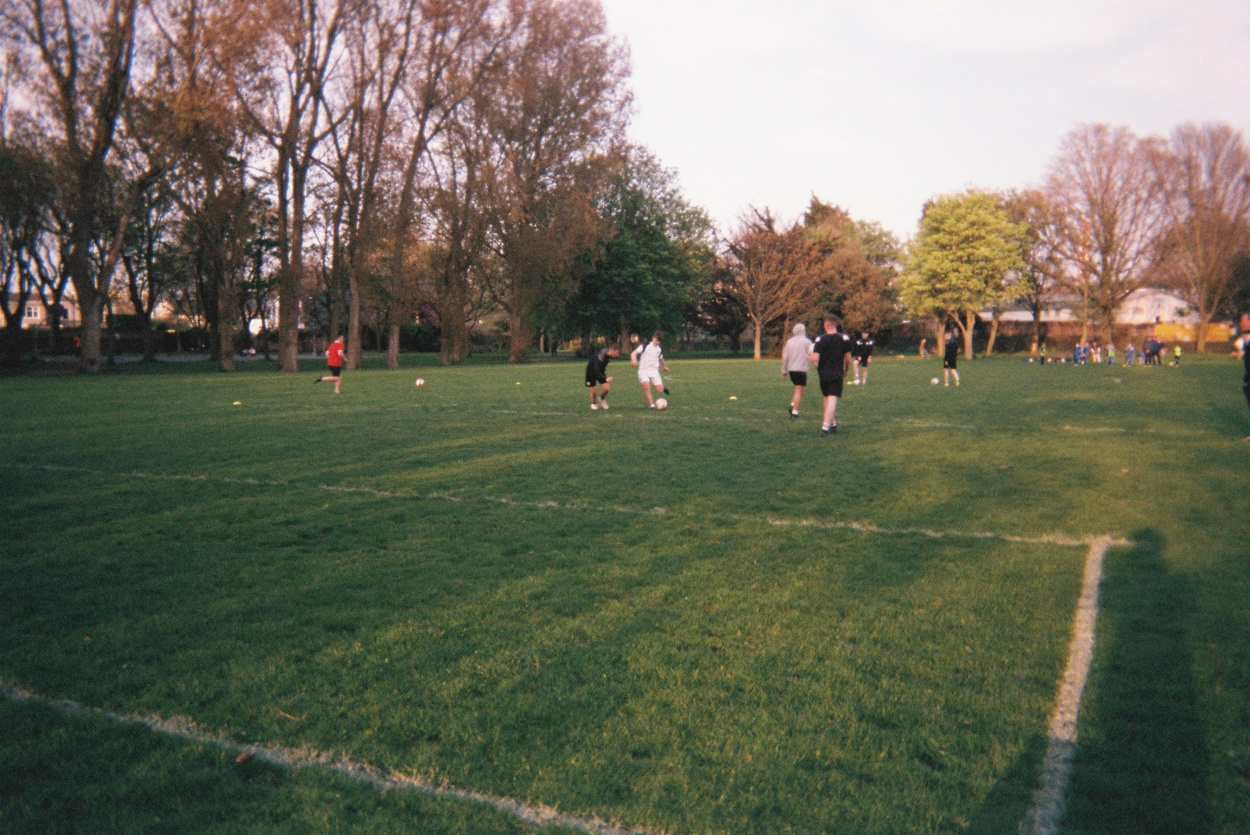
The Next Samuel Eto’o
Red Deporte is an NGO which uses the power of sport to empower young people in disadvantaged communities around the world. Working in East Cameroon since 2012, Red Deporte uses football to improve performance at school and promote basic health among children. The photos were taken at the Public School of Bindia in East Cameroon and mainly feature refugee children from neighbouring Central African Republic. Yvan Bikambo is a coach with Red Deporte.
Can you introduce yourself and tell us about your football life ?
My name is Yvan Bikambo. I am from the East region of Cameroon. I was born in Bertoua where I studied. I left for the Adamawa region in 2014 for university to study sociology and anthropology, but I did not finish due to limited financial resources.
For that reason, I returned to Bertoua and began to volunteer and project manage community projects. In 2016 I began coaching - I have been coaching for three years and am a coach with Red Deporte. I like to implement and play games with the kids in communities.
Who is in the photos?
These photos reflect the activity of the Public School of Bindia in East Cameroon, a school supported and built by Red Deporte in 2012. These kids belong to the community and many of them are refugees from Central African Republic, because Cameroon and Central African Republic are neighbours. Most of the children know how to play football because they used to play in their home country.
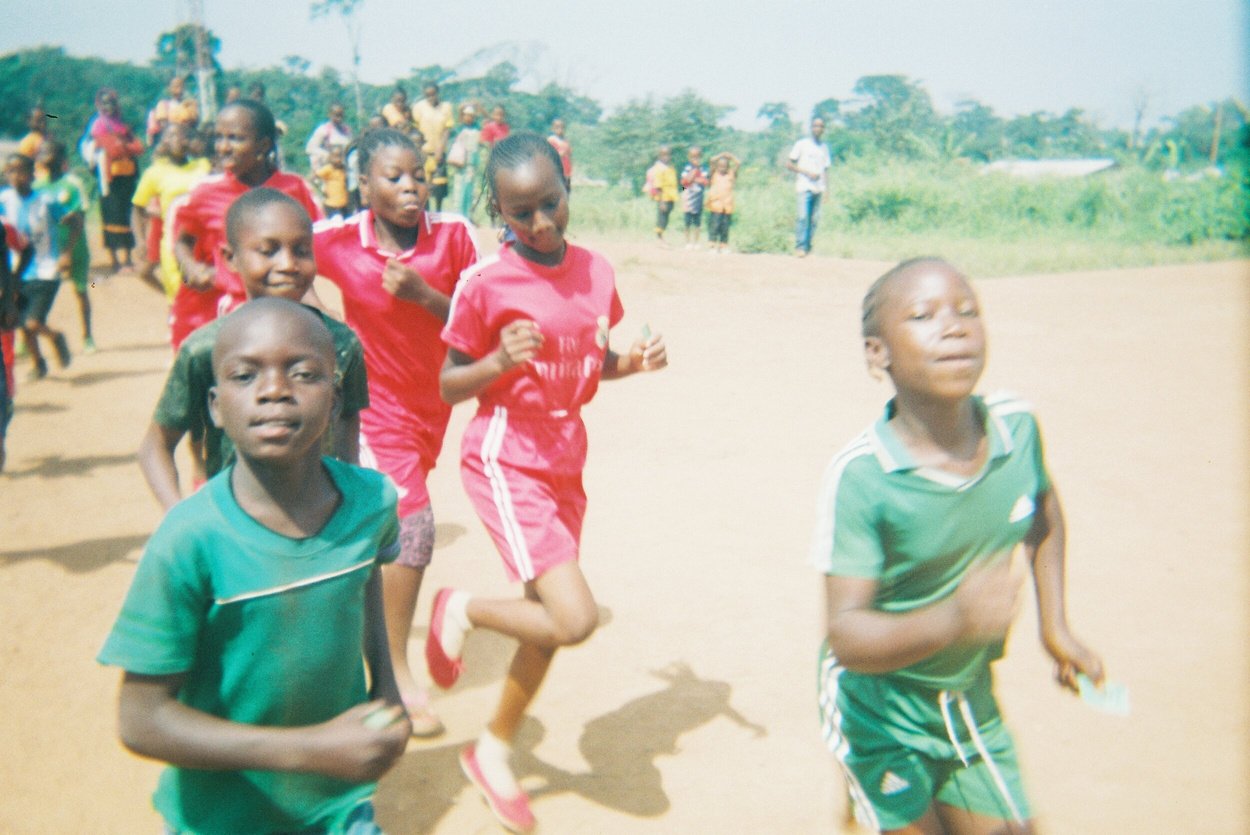
Can you tell us the story of any of the children?
Most of the children do not share their experiences and usually we do not try to make them tell their history. Instead we work to bring them joy, peace and hope through our programme. Although I noticed that many of the refugee children, when they were asked to draw something from their country, they often drew soldiers and airplanes, especially the boys.
What did you try to show with the photos? Was there any wider meaning with the photos?
I tried to spontaneously show the children playing during activities run by Red Deporte. In Africa children are happy when playing football. There are many beautiful colors and blue skies, which means hope and light to me.
I love to support other people to have a better life and enjoy connecting and sharing with other cultures. I love to make people happy and give a sense of order and flowing of friendship in my daily life.
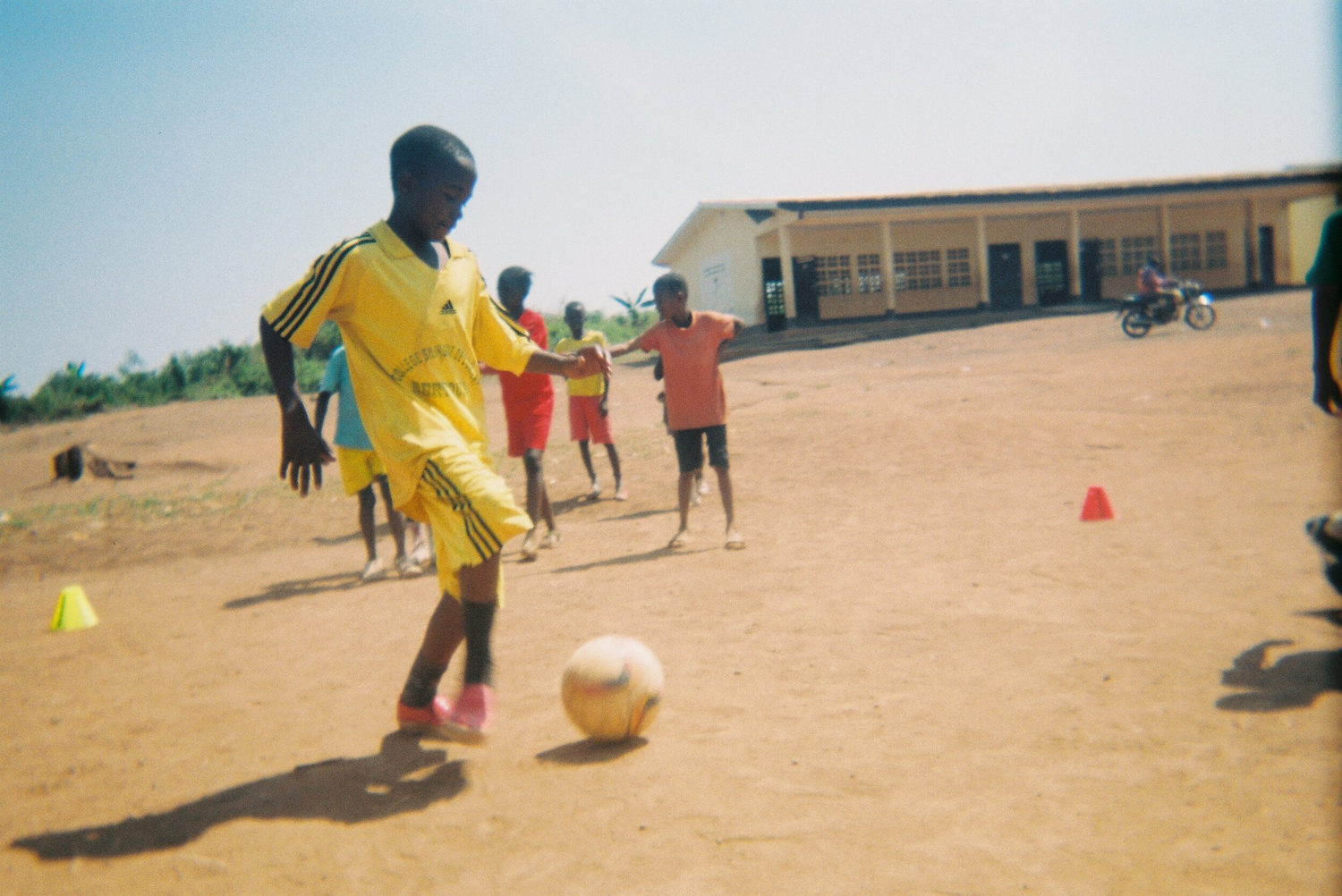
Do the children play with local Cameroonian people or children?
The primary school of Bindia is a public school where students from refugee families are in majority. In the classrooms we have both Cameroonian and Central African children. And they play together during breaks. They also meet outside school as they live in the same areas and communities in Mandjou.
In Mandjou the refugees are well integrated into the communities because many of them have developed businesses: selling cereals and vegetables, beef, and household products.
Why is football so important for Cameroon and Cameroonian people?
Every Cameroonian boy dreams to be Samuel Eto’o, but even if they won´t be that, they enjoy the dreaming and the process of personal improvement, and the friendship that is built on the way to this dream. Cameroonians love our country and football represents our best ambassador, since Cameroon is one of the most successful countries in African football.
Red Deporte promotes sport as a tool for education, health and integration. The refugees came with their families around five years ago. They enjoy community life with their Cameroonian fellows.
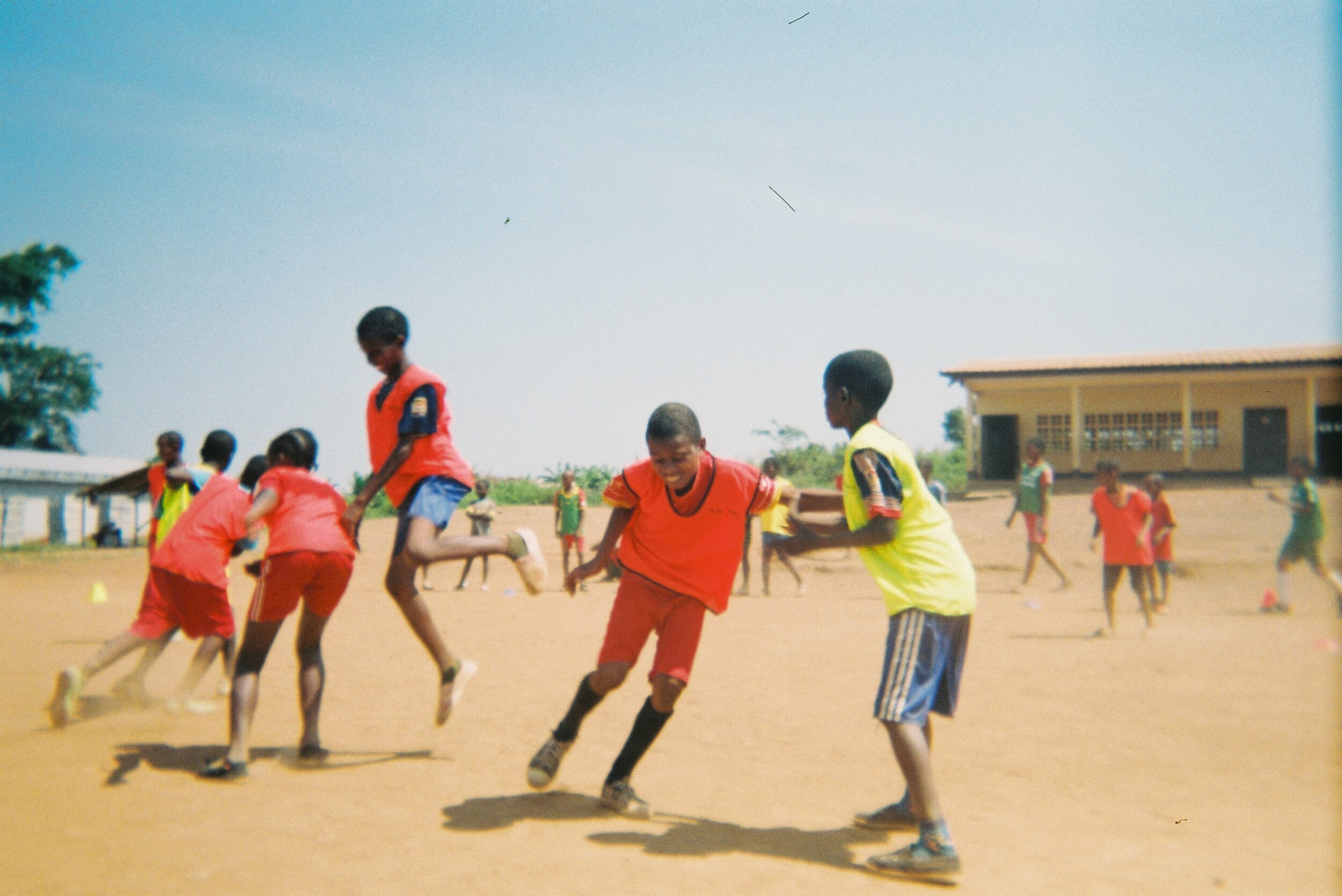
What does football mean to you?
For me, the most important thing is football is a way to connect with people, make children happy and it is a tool for learning important things in life.
In the future I hope football continues growing and it will be used as an educational instrument for our children and society.
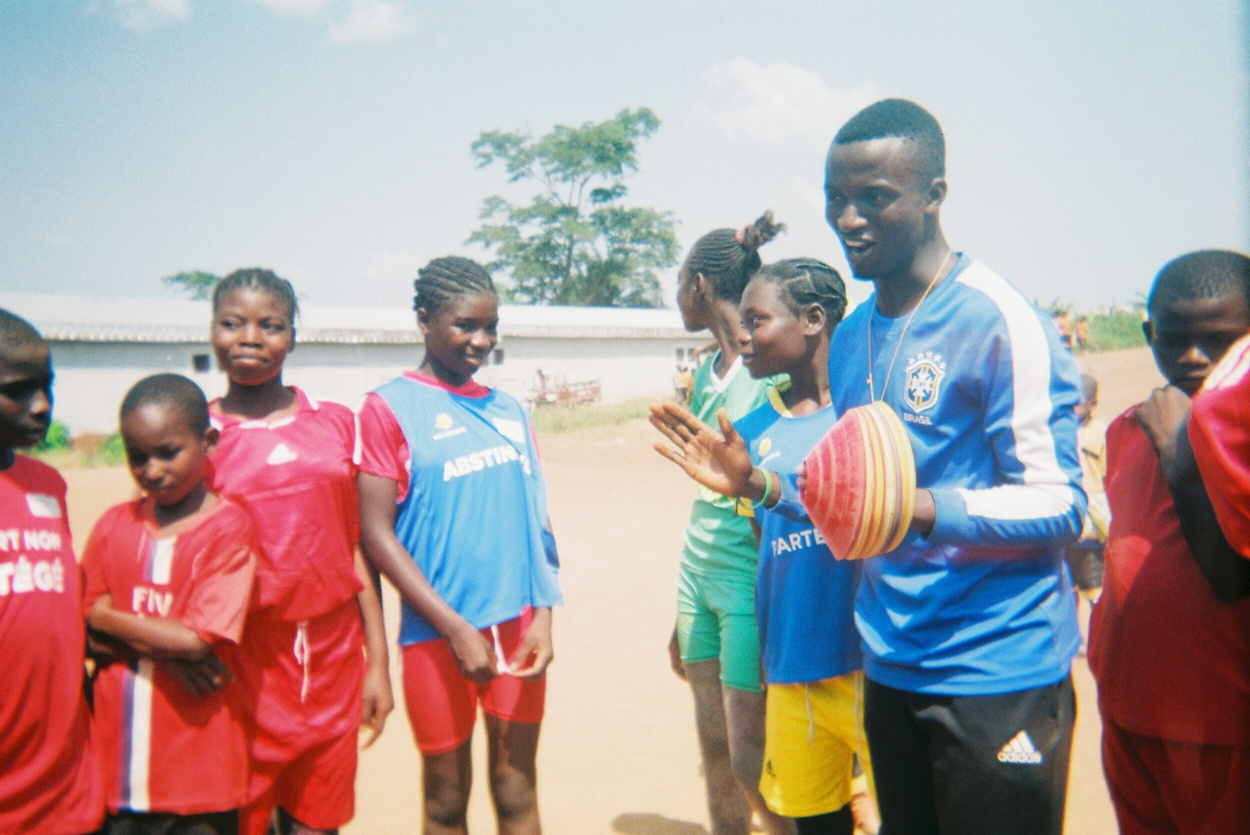
Rita Ora: It's important to remind people I came to the UK as a refugee
Rita Ora has discussed her experiences as a refugee and the importance of positive refugee stories, in an exclusive interview in this week’s Big Issue in which she and DJ/producer Norman ‘Fatboy Slim’ Cook, discuss their new collaboration, Praising You, an update of Cook’s classic Praise You.
Ora and her family fled their native Kosovo in 1991 amid ethnic tensions and violence as the former Yugoslavia disintegrated and thousands of displaced people sought refuge in the UK and other countries.
“At this point in my career – I’ve been in the game 10 plus years now – I felt it was important to remind the public, as well as myself, of the journey,” Ora said of her wish to open up “people’s perception of a girl like me coming from a third world country like Kosovo, and yes, being a refugee and coming into the UK and my dreams coming true.”
Ora emphasised the importance of cherishing the opportunities she has been given: “If I didn’t have the opportunity to move to London and my parents didn’t make that brave change, I wouldn’t be able to sit here and talk to [Norman Cook], one of my heroes. And on top of that, make music. I say to myself every day, I’m so fortunate and so grateful. I know I deserve it because I work really hard. But there’s a lot of kids like me from where I’m from that it doesn’t really happen for. So I never take it for granted.”
The pair discussed the value of sharing uplifting refugee stories in the current political climate, in which refugees, especially those arriving on small boats, are a political football. It’s a climate exemplified by the recent passing of the UK’s Illegal Migration Bill, which has been criticised for dramatically curtailing the asylum system.
The UN refugee agency stated that the legislation would “extinguish the right to seek refugee protection in the United Kingdom for those who arrive irregularly [such as on small boats] no matter how compelling their claim may be.” The home secretary, Suella Braverman, justified the bill by citing the financial and social costs of “uncontrolled and illegal migration”. The issue has been fiercely debated in the media, and was sent into overdrive when Gary Lineker famously compared the government’s policies to those of Nazi Germany.
“It’s incredibly hard to not be swayed when you see things being written every day,” said Ora. “It’s almost like because it’s written in the papers it must be the truth. But you have to remember there’s a lot of people that you might be listening to or that you watch on TV that have immigrant roots.”
Rita Ora has supported UNICEF UK since 2013, with a particular interest in their work with refugees. In 2019, she was made a UNICEF UK Ambassador.
Cook acknowledged Ora’s role as a positive example and highlighted the significant contributions of migrants to the UK: “There are so many people who come from a migrant background that contribute so much to their lives. That’s how this country was built.”
